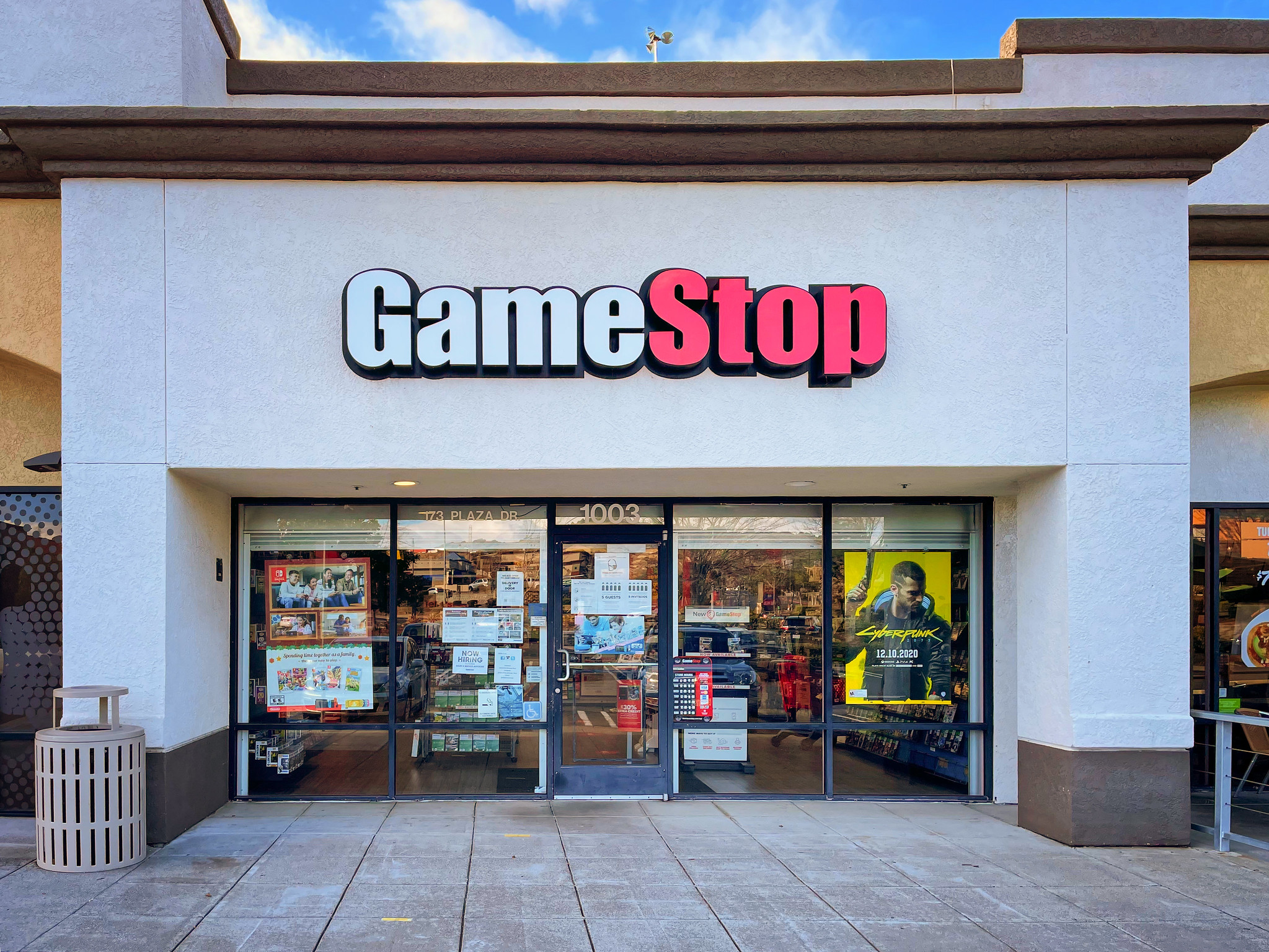The new year may still be in its infancy, but 2021 has probably already experienced its most remarkable finance-related series of events, or at least its most unique. At the center of it are a struggling chain of video game and merchandising retailers, an online forum, a trading app, and a few panicking hedge funds.
So, just how has the GameStop shares saga unfolded, and what exactly made the whole thing possible?
A Quick Overview
The whole episode has been covered extensively, but for context, it’s worth providing a brief summary. Over the final week in January, the stock price of GameStop, a long-standing but now struggling video game and electronics retailer, soared to unforeseen heights, rising 359 percent from $96.80 to $347.50 by Friday’s close. What’s more incredible, the stock price rose almost 10,700 percent from GameStop’s April 2020 price of $3.25.
This has not been caused by any revolutionary changes to the business but by a large group of retail investors who banded together on a Reddit forum in an attempt to “short squeeze” the stock. So far, this tactic has been extremely successful for retail investors but catastrophic for the hedge funds that shorted GameStop’s stock, with around $6 billion of hedge fund money lost.
The Power of Social Media
There are ample instances of the power of social media to mobilize the masses, both good and bad—from crowdfunding to organizing protests and revolutions—but this is perhaps the first time it has been used to target the stock market and bring down multibillion-dollar hedge funds, at least certainly on this scale.
The platform primarily responsible for the GameStop frenzy is online forum giant Reddit—more specifically, a subreddit called r/WallStreetBets. Now with more than 7.7 million members (or “degenerates” as the group labels themselves), r/WallStreetBets has been around for several years and prides itself on its cavalier approach to shares and the stock market.
However, once it spotted the situation regarding GameStop (where a low-value stock became targeted by a flurry of short bets), r/WallStreetBets and its many retail investor followers pounced. GameStop’s low price meant anyone could buy the stock, and as it was one of the most shorted stocks on the market, it provided an ideal opportunity to both band together and drive the price up and stick it to the hedge funds that were attempting to cripple a much-loved company. It was a perfect stock market storm.
Yet, while identifying the situation is one thing, being able to deliver on the plan is something else. Fortunately for retail investors, certain tools and platforms allowed the plan to turn into a reality.
Robinhood and the Fintech Tools That Powered the Surge
Aside from GameStop, the other company frequently in the headlines during this whole saga is Robinhood, a commission-free stock trading and investment app. Robinhood describes its service as the “democratization of finance,” allowing regular folks to trade stocks and invest in fractional shares without the need for large capital.
Traders on the app can buy and sell as many shares as they want without paying a single penny in trade commission. In essence, Robinhood’s service is set up perfectly for the scenario that has unfolded with GameStop. In theory, investors can trade an unlimited amount of GameStop shares without incurring any charges.
Robinhood received vociferous criticism when it blocked retail investors from purchasing any more GameStop shares, causing the value to temporarily plunge and leading to conspiracy theories, political intervention, and even a lawsuit from one user. Soon after the backlash, Robinhood secured a cash injection to facilitate the surge in trades, so it removed the block. GameStop stock soared once again.
While the GameStop episode is a unique and extreme case, it does serve to highlight the ease with which anyone with a smartphone and a couple of bucks can enter the trading game. Robinhood may be the company in the spotlight now, but it is one of many investing and trading apps available to the average person on the street. TD Ameritrade, Fidelity, eToro, E*TRADE, and many others offer similar services.
Could This Happen Again?
It’s difficult to predict the next twist or turn in the GameStop saga given the extraordinary series of events that have already unfolded. Perhaps the more pertinent question is: Could something like this happen again?
Theoretically, yes, and r/WallStreetBets and its “degenerates” have already turned their focus to silver, triggering an eight-year high in its price and causing Robinhood to raise a further $2.4 billion. However, that differs greatly from the GameStop squeeze, as the major banks the Reddit forum are supposedly targeting have not shorted the price of silver.
Perhaps the biggest consequence that will come from the GameStop saga is that it may influence the way hedge funds approach short strategies, now they know a group of retail investors armed with smartphones and trading apps are ready to pounce on the right opportunities to damage their bottom line while lining their own pockets.
Has the GameStop frenzy turned the tables in some respects? That remains to be seen, but social media and the “democratized” trading platforms have at least made Wall Street warier and given retail investors greater influence. In that regard, r/WallStreetBets has succeeded in one of its missions.
-Featured Image courtesy Will Buckner | Flickr

